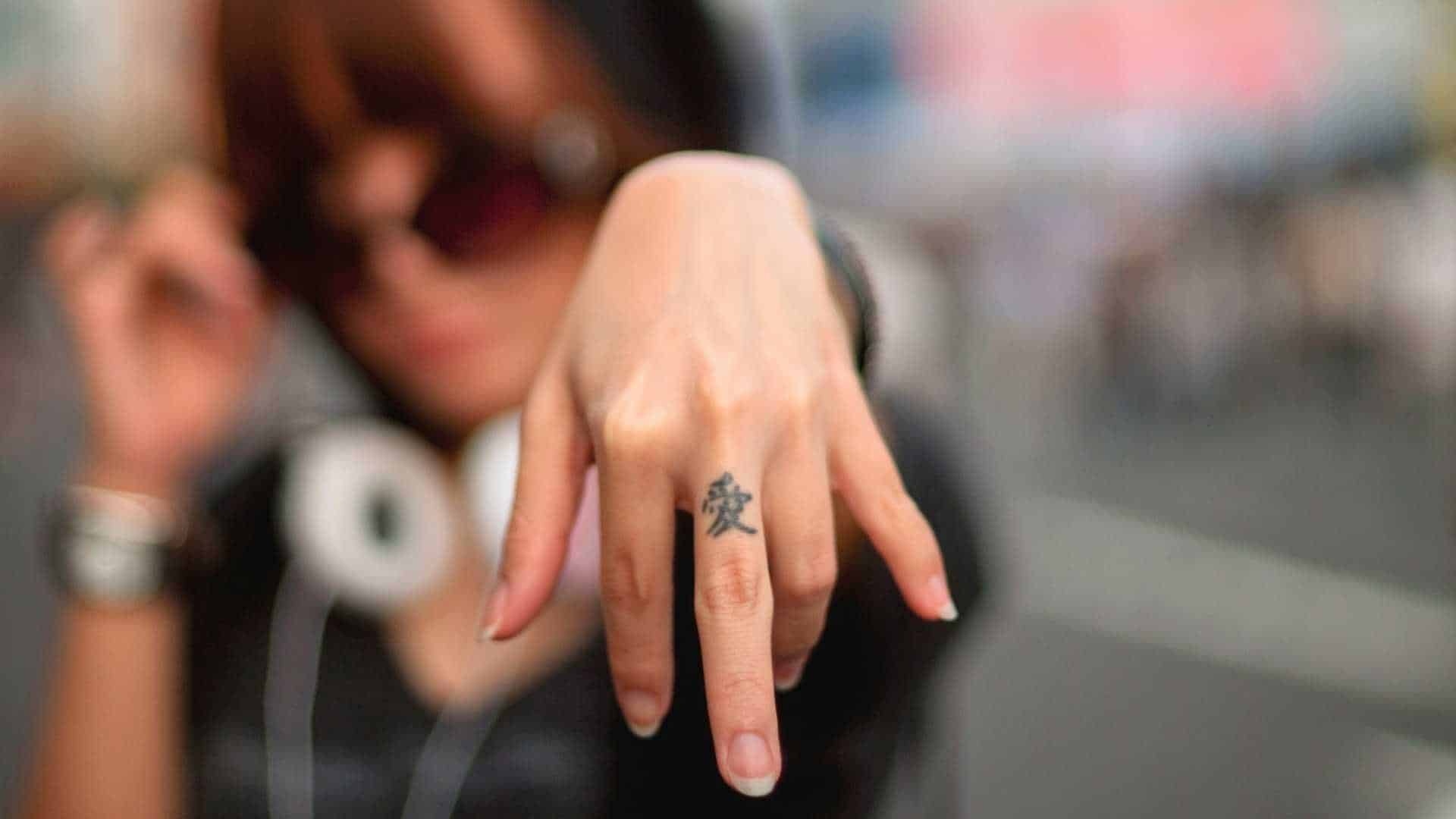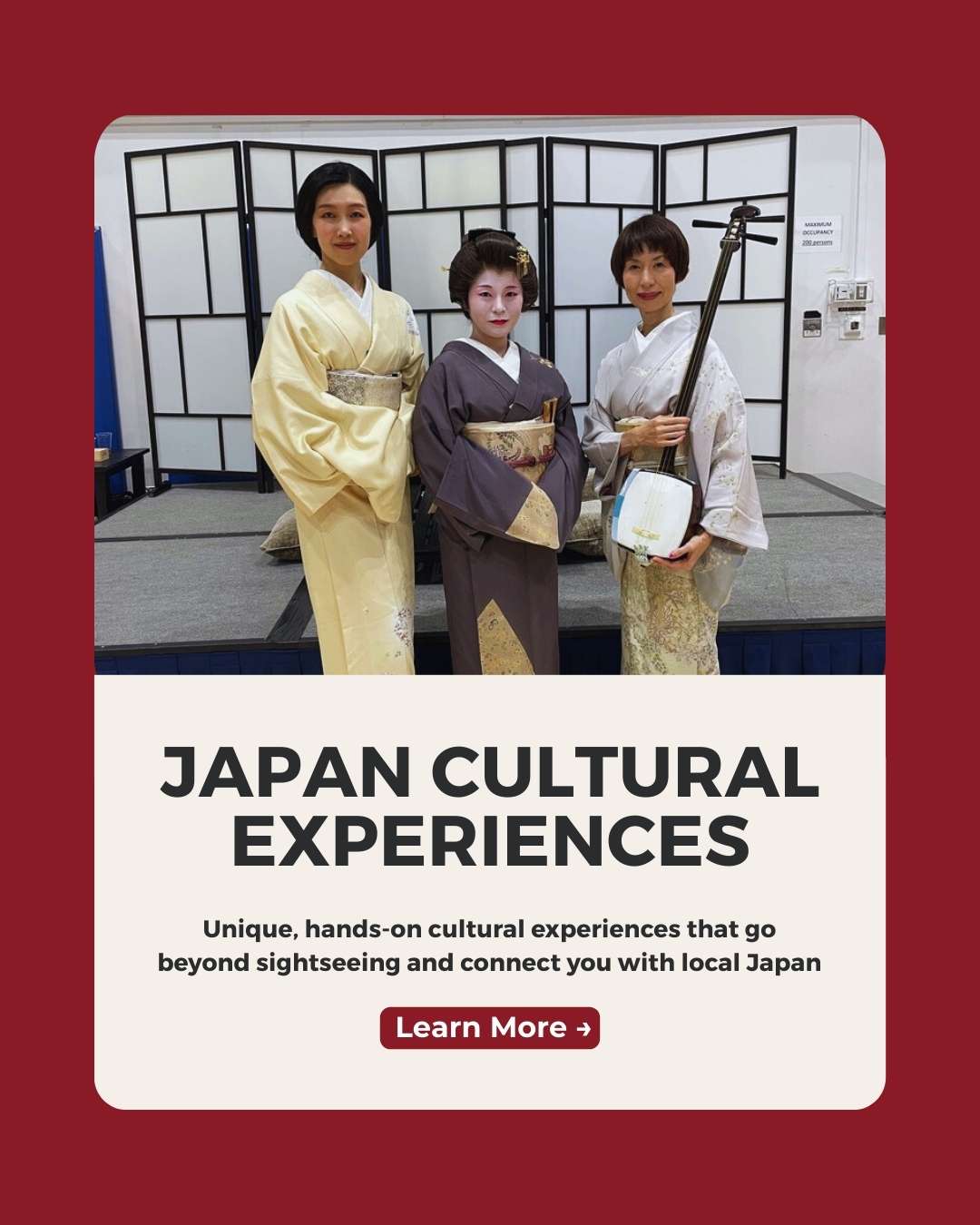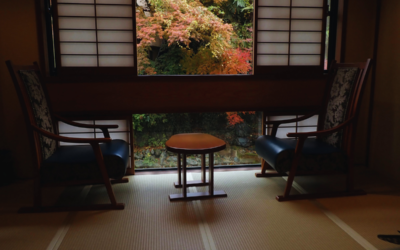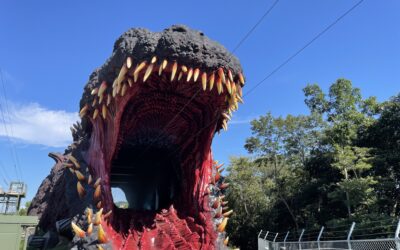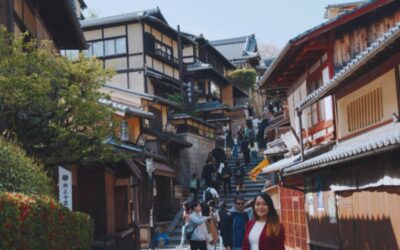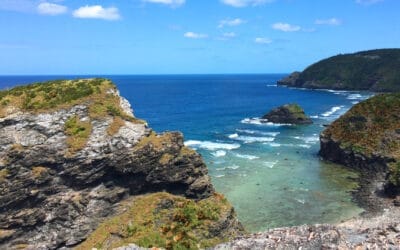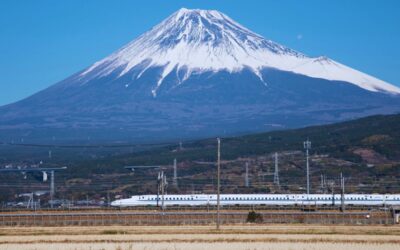As some of you might already know, tattoos are considered quite taboo in Japan. If you’re planning to travel to Japan with tattoos, you’re probably wondering about the dos and don’ts. Here’s everything you need to know about having tattoos in Japan and some of the Onsen that allow them. For those of you with tattoos, I hope this can help you figure out what to do, what to expect, and where you can go during your stay in Japan.
Why are tattoos taboo in Japan?
Although the view on tattoos has changed little by little over the years, they’re still considered taboo, making it quite difficult for those with tattoos to enter certain establishments in Japan, such as the famous hot springs, or onsens.
In Japan’s past, tattoos were used to mark those who committed a crime. More recently, tattoos have become associated with the yakuza, Japanese crime organisations heavily involved in various businesses. While their numbers have dwindled today, for the older generation who remember the yakuza in their heyday, being around tattooed Asians may be uncomfortable.
On the other hand, tattooed Caucasians or African-Americans are often seen as ‘cool’ or ‘stylish’. In other words, in Asian communities, tattoos are seen as marks of a criminal, while in Western communities, they’re considered a fashion trend.
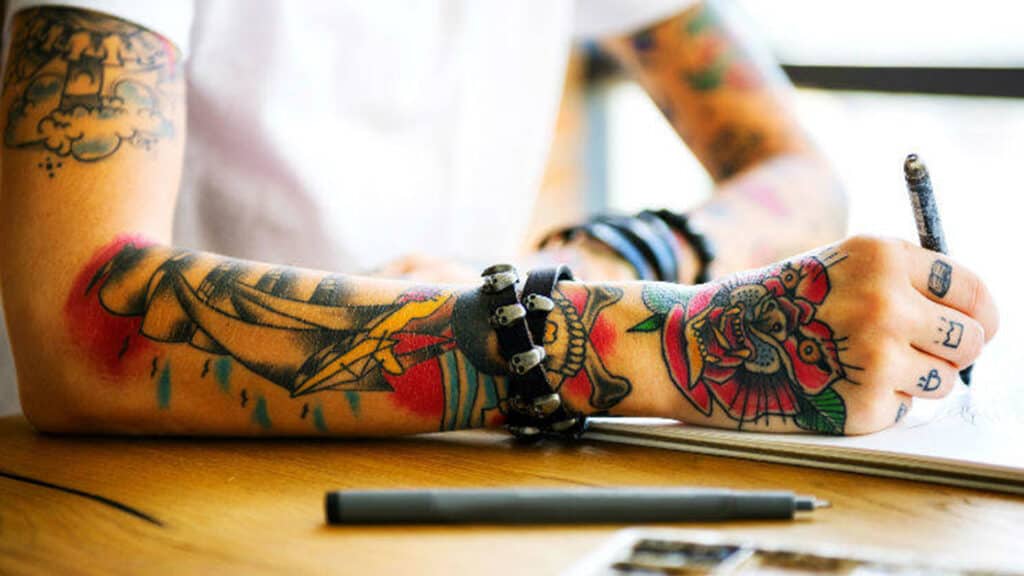
What is it like having tattoos in Japan nowadays?
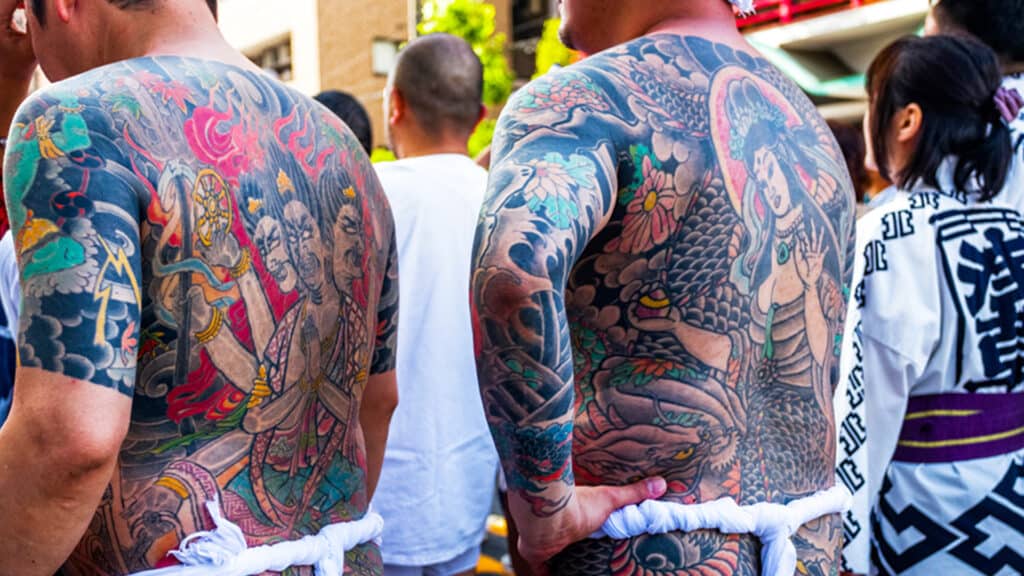
Is tattoo taboo in modern times? Working in Japanese companies with tattoos can also be challenging. Many companies may hesitate to hire individuals with tattoos and may require those they do hire to cover them up. That’s why most Japanese people tend not to have tattoos.
In recent years, Japan’s attitudes towards tattoos have shifted. Tattoos are becoming more accepted and are seen as forms of art rather than signs of rebellion. More and more younger Japanese people are getting tattoos, and while some may still stare at tattooed individuals walking down the streets, it’s often out of curiosity and interest, rather than judgement or disgust.
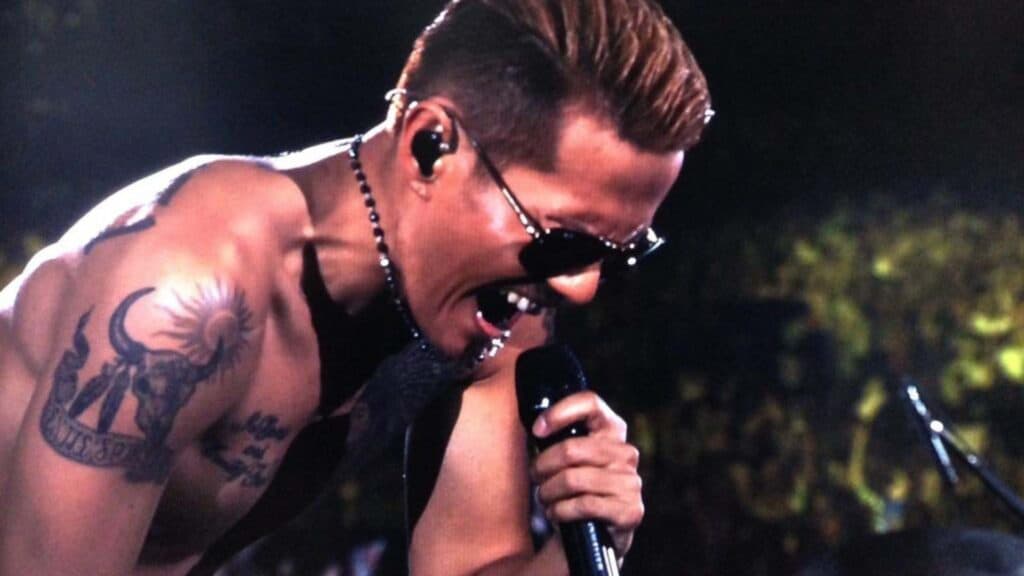

Several Japanese celebrities proudly display their tattoos. For instance, ATSUSHI from EXILE has multiple tattoos on his body, including a famous Indian Warrior tattoo on his left chest. Another well-known Japanese celebrity with tattoos is Namie Amuro; she has several tattoos on her left arm and wrist.
How can you enter onsens in Japan with tattoos?
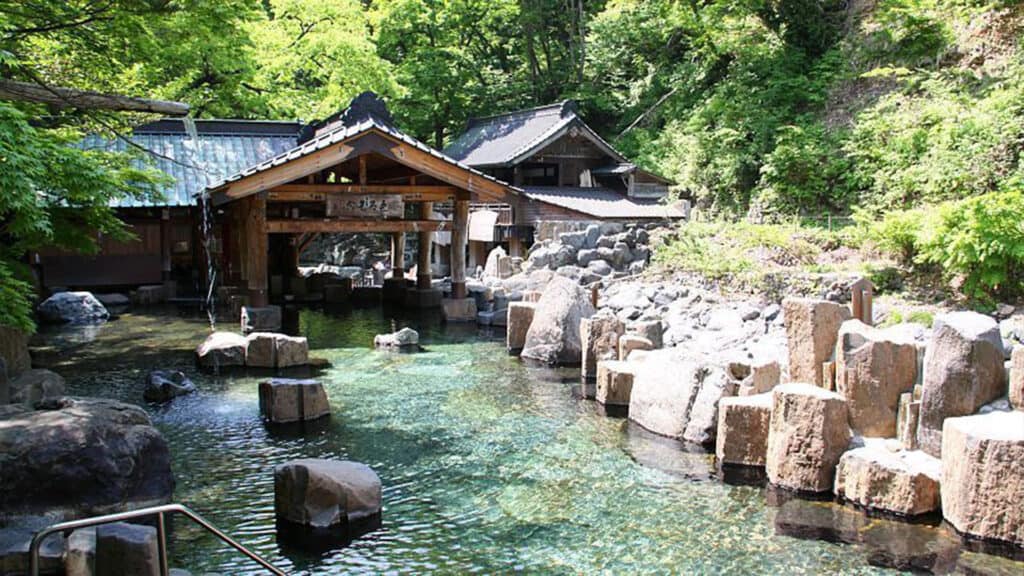
Though there have been changes, a significant number of establishments still prohibit tattooed individuals. If you’re planning to travel in Japan with tattoos, be aware that places like onsens, public baths, swimming pools, gyms, and public beaches may not always permit tattoos.
For those of you with tattoos who want to experience Japan’s famous hot springs—a truly special and beautiful parts about Japanese culture—we’ve compiled some of the best options for you. Check out these recommendations for travelling in Japan with tattoos.
Understanding the Difference: Sentos versus Onsens
Firstly, it’s essential to distinguish between two types of baths: onsens and sentos.
Onsen (温泉)
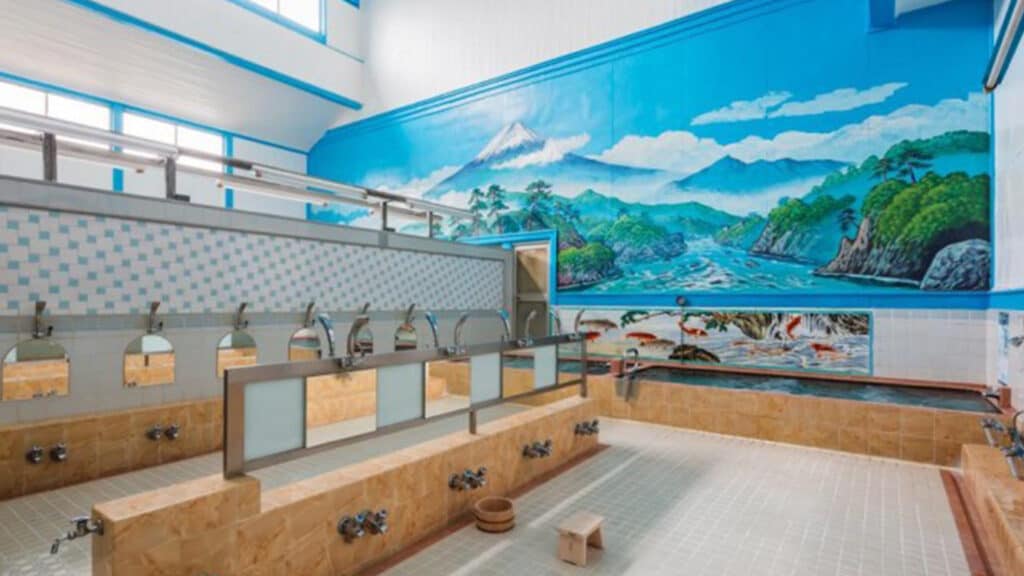
Onsen translates to “hot spring.” To qualify as an onsen in Japan, the water source must be at least 25 degrees Celsius and meet specific criteria regarding water elements and mineral content.
Sento (銭湯)
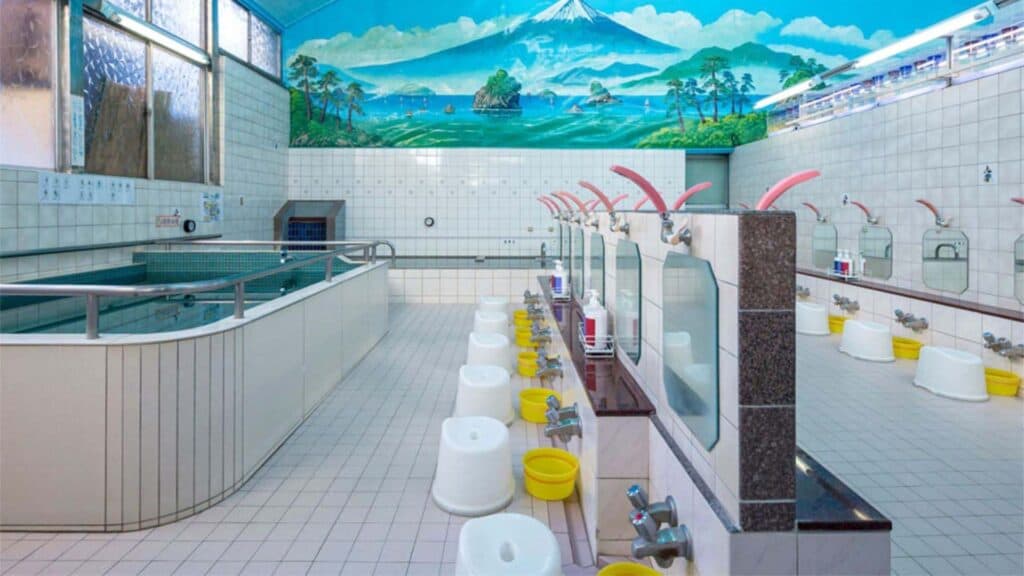
Sento, on the other hand, translates to “coin” and “hot water.” Sentos are public baths, and they’ve become increasingly popular as homes in Japan are built smaller, making it more challenging for people to have baths at home. Many sentos allow tattoos, as they have a more relaxed atmosphere compared to onsens.
If you want to visit an onsen that doesn’t permit tattoos, you can use a seal to cover them up when you travel to Japan. These seals are easy to apply and inexpensive. You can conceal your tattoos with these skin-coloured seals and still enjoy the onsen experience. However, they may only work for smaller tattoos. If you have larger tattoos, consider visiting a sento instead.
Ink-Friendly Bathing
Sentos Welcoming Tattooed Guests
1. Daisantamanoyu (第三玉の湯 )
This sento might not be the fanciest but it is located very conveniently just five minutes from Iidashi Station, in Shinjuku ward. Renewed in 2018, Daisantamanoyu has a high-concentration carbonic bath, a jet bath, an open-air bath, and even a sauna.
Details
- Opening hours: 15:00-25:30
- Closed: Wednesdays
- URL: https://spa-tokyo.net/z-t-dai3-tama/index.html
Price
- Adult: 470
- Children: 180
- Sauna: 1000
2. Takaban Yu (ぽかぽかランド鷹番の湯)
Takaban Yu advertises their spring water with cyanuric acid that can speed up your metabolism and give your skin a glow. There are two types of saunas here: a high-heat dry sauna, and a salt sauna. They also have a beautiful outdoor sauna where you can enjoy peace and quiet. On top of that, there are many different types of jacuzzis and baths here for you to experience.
Details
- Opening hours: 15:00-24:30
- Closed: Friday, 1st, 3rd, 5th Thursday
- URL: www.takaban-yu.com/
- Address: 東京都目黒区鷹番2丁目2−1
Price
- Adult 470
- Children 180
- Infant 80
- Sauna 460
3. Mannenyu (万年湯)
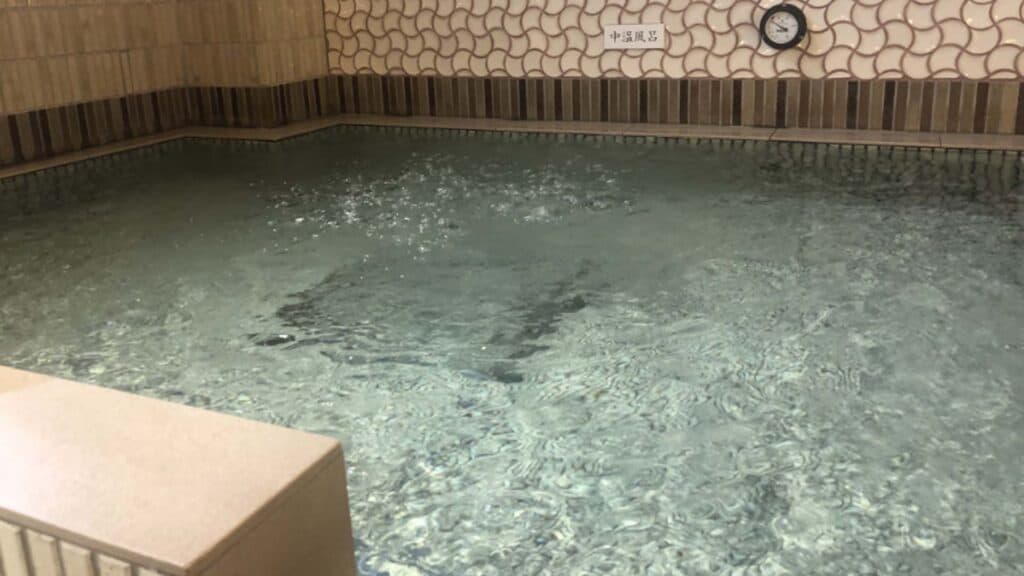
Mannenyu is situated in the very center of the city. It is just one stop, or about 15 minutes walk from Shinjuku, in the popular Shin-Okubo Korea town. Mannenyu provides free body washes, shampoos, and face towels. The inside of the facility is clean and comfortable with multiple baths for you to enjoy and relax in.
Details
- Opening hours: 15:00-24:00
- URL: https://mannenyu.jp/
- Address: 東京都新宿区大久保1-15-17
Price
- Adult: 470
- Children: 180
- Kindergarten children: 80
Onsens Welcoming Tattooed Guests
1. Soshigaya onsen (そしがや温泉)
This onsen offers a wide range of baths for you to experience. It’s noteworthy that the spring water here is referred to as “black spring water,” containing elements that, over the years, have shown the ability to rejuvenate your body, skin, and health. Additionally, they provide a mini swimming pool for customers to enjoy. Sauna facilities are also available on-site. Outside the baths, there is a reading corner for those in need of a break.
Details
- Opening hours: 14:00-25:00
- URL: http://www.soshigaya-onsen21.com/
- Address: 東京都世田谷区祖師谷3-36-21
Price
- Adult: 470
- Children: 180
- Infant: 80
- Sauna: 330
2. Shimizuyu (清水湯)
Shimizuyu is one of the few natural onsens in Tokyo. They offer two types of natural spring water: golden spring water and black spring water. As mentioned earlier when introducing the Soshigaya onsen, black spring water is renowned for its incredible elements that can nourish and rejuvenate the body. Golden spring water is believed to possess healing powers for those experiencing pains and injuries.
Shimizuyu features various baths, including jacuzzis and an outdoor bath. Additionally, there is a resting area for guests feeling overheated. The establishment also offers a rock bath, which has gained popularity in recent years. Made from rocks sourced from a mountain in Korea, the rock bath is reputed to boost metabolism and blood circulation, enhancing rest and sleep quality. Sauna facilities are also available, complemented by incense to promote relaxation.
Details
- URL: http://www.shimizuyu.com/
- Address: 東京都品川区小山3-9-1
Opening hours
- Weekdays 12:00~24:00
- Saturday 12:00~24:00
- Sunday 8:00~24:00
- Closed: Mondays
Price
- Adult: 470 yen
- Junior high school student: 300 yen
- Child: 180 yen
- Kindergarten children: free
- Rock bath: 1,400 yen (women only)
- Sauna: 400 yen
3. Thermae-yu (テルマー湯)
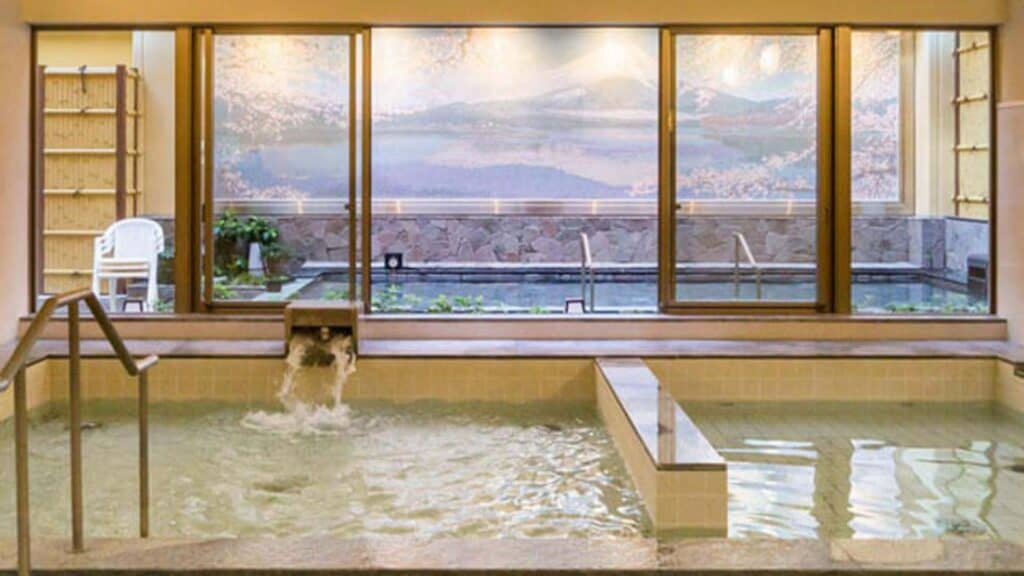
Thermae-yu is truly remarkable and deserves a small shout-out. It’s one of the most popular destinations for travellers in Japan with tattoos. While they allow tattooed individuals to enter, they do require them to cover up with the aforementioned skin-coloured patches, available at the front desk. As mentioned earlier, these patches are effective mainly for smaller tattoos.
Thermae-yu is definitely a place where you can unwind for an extended period. They offer natural onsens, rock baths, saunas, massages, restaurants, cafes, and much more. Notably, there’s also a spacious open-air onsen.
One of the highlights of this establishment is its diverse range of rock baths. They boast five types of rock baths, segregated by gender. It’s said that these rock baths possess healing properties and the ability to induce relaxation and rejuvenation.
If you want to find out more about this bath, check out our blog about Thermae-Yu here.
Discovering Tattoo-Friendly Bathing Options Across Japan
Navigating Japan with tattoos is gradually becoming more accommodating. While the taboo surrounding tattoos persists, there’s a noticeable shift towards acceptance, with an increasing number of establishments now welcoming tattooed individuals. So, is tattoo taboo in Japan? Yes, to an extent. However, it’s important to recognise that attitudes are evolving, and you’re likely to encounter more places where tattoos are permitted.
If you have the opportunity, don’t miss out on visiting the onsens that cater to tattooed guests. It’s a chance to experience the rich culture of Japan while enjoying the therapeutic benefits of these traditional hot springs. So, whether you’re seeking relaxation, rejuvenation, or simply a unique cultural experience, travelling with tattoos in Japan offers a growing array of options to explore.

